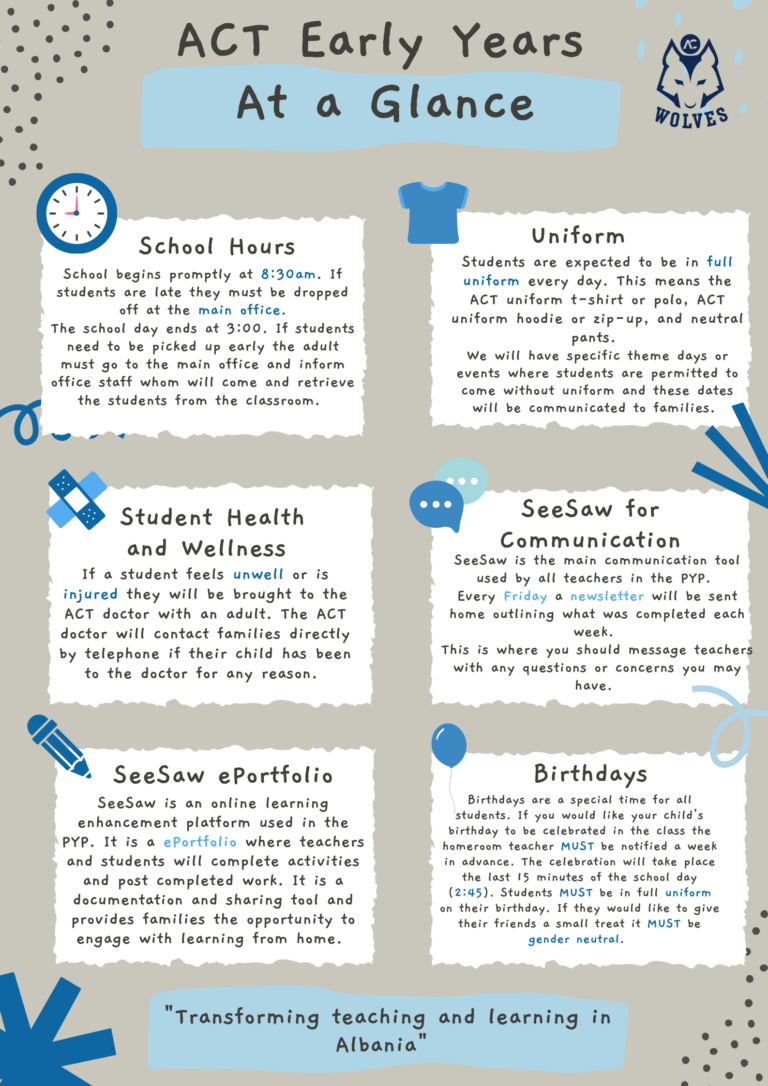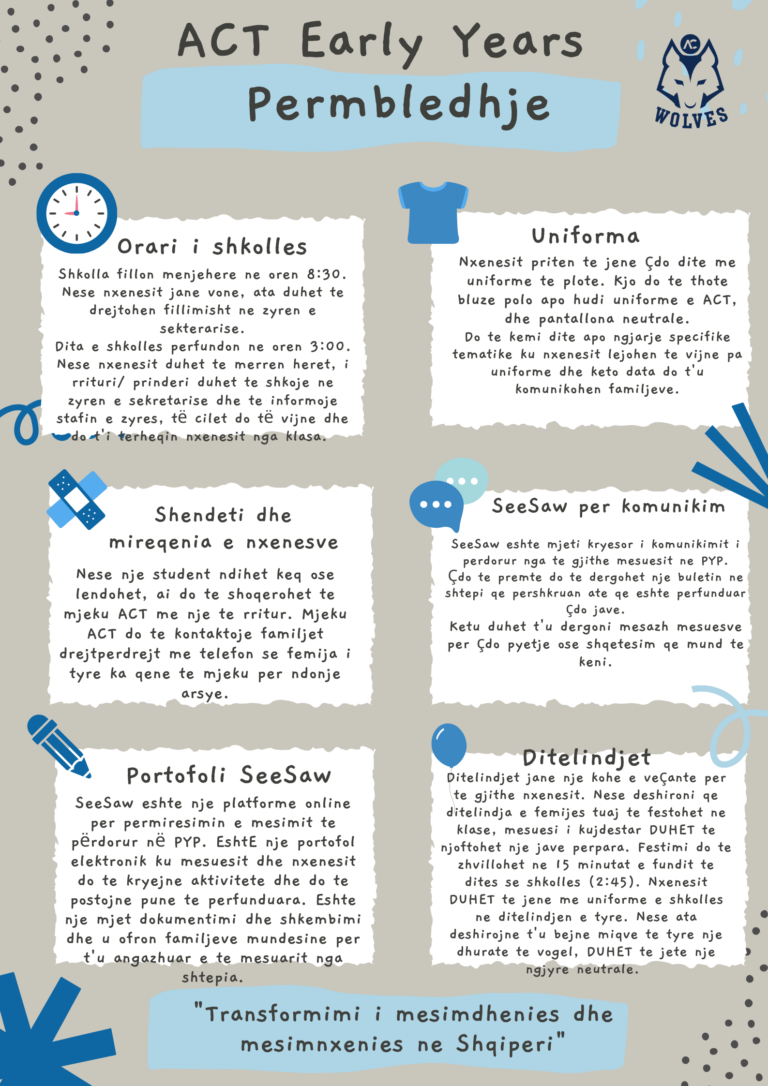IB Primary School Programme (PYP)
- Home
- Programmes
- IB Primary School Programme (PYP)
The power of the IB programme
In the PYP Program at Albanian College Tirana, we value the whole child. Students can join our school as young as three years old and transition into Secondary school by the end of Grade 5. During this time, we focus our attention on learning through inquiry using the IB PYP curriculum which includes academic knowledge and understanding, and social and emotional education. The curriculum is transdisciplinary and is aimed at retaining conceptual knowledge and understandings predetermined by learning outcomes, all while developing a growth mindset and agency in an internationally minded child.
The language of instruction is in the English language, and celebrating the Albanian language and culture throughout the week through Albanian language classes and folding in any other mother tongue languages that are used in and out of our learning community. Our student population is largely local Albanian families but we are lucky to have several international families in our community as well. Our goal is to promote life-long learning in our youngest students so that they may develop into Open-minded, Reflective, Respectful Students who value others, the world and their place in it.
Every child is unique and we make sure to celebrate our differences as well as our connections and similarities in a safe, friendly and welcoming environment. Our teaching staff takes part in regular professional development to ensure that we are collectively using the most up-to-date strategies, information, processes and techniques with our students. Staff promote after school clubs, activities and learning that happens beyond our classroom walls. Students and staff use a wide variety of digital resources to research, record learning and maintain consistent communication with the whole ACT community. At ACT, we have two options: your child can experience the programme with an international teacher who brings an international perspective to the learning experience, or with a local teacher who enhances the local perspective within the framework of the Programme of Inquiry.
We are proud of our community and all of the great service, action and learning that is happening on and off campus.
Transdisciplinary Themes: The Context
The Transdisciplinary Themes provide us with the context in which the learning takes place and connect what we do at school with what happens in the real world. We have six transdisciplinary themes that articulate our topics throughout the year.
– Who we are
– Where we are in place and time
– How we express ourselves
– How the world works
– How we organise ourselves
– Sharing the planet
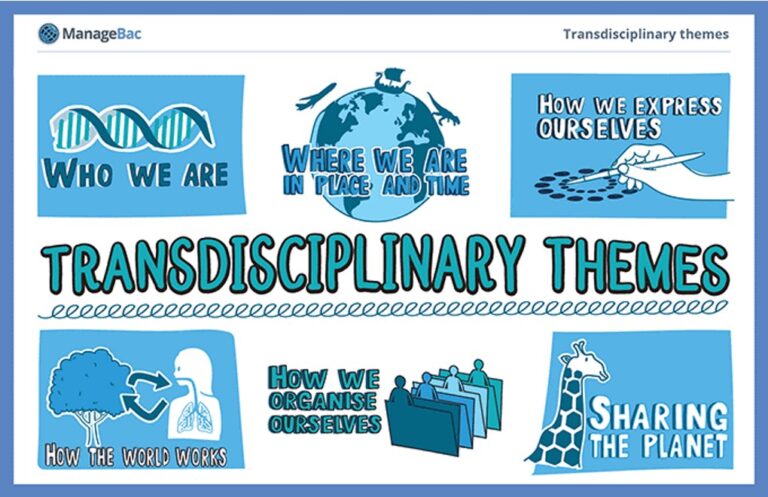
Subjects: The Content
Although the PYP is a transdisciplinary programme, students need to acquire subject-specific knowledge and skills to be able to connect and transfer their learning across domains and disciplines. At ACT, we have eight subjects with their specific learning outcomes and objectives:
– Language (English and Albanian)
– Mathematics
– Science
– Social Studies
– Personal, Social and Physical Education
– Music
– Visual Arts
Key Concepts: The Deep Learning
Concepts are big ideas that are universal, timeless and transferable. Through the understanding of concepts, students create mental structures that help them make sense of the world and connect prior knowledge with new experiences that facilitate learning. In the PYP, there are seven key concepts:
– Form
– Function
– Causation
– Connection
– Perspective
– Change
– Responsibility
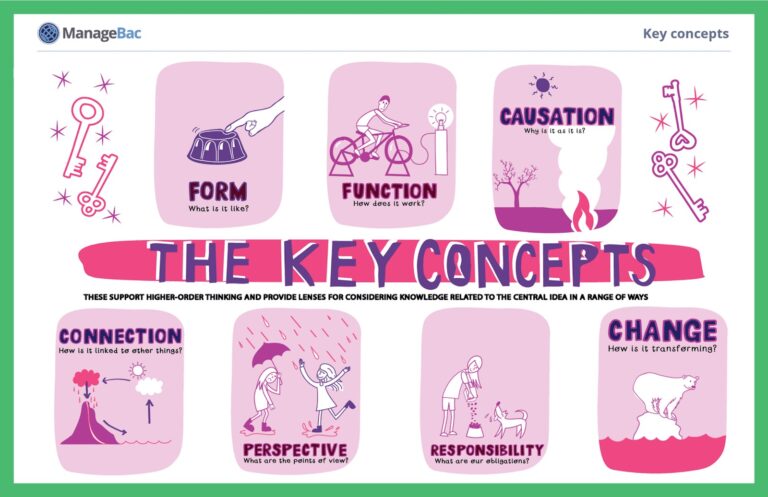
Approaches to Learning: The Tools
In order to succeed, students need learning tools. Approaches to Learning represent the skills that will help students learn how to learn, allowing them to become self-regulated, lifelong learners. There are five categories of these skills:
– Thinking
– Social
– Communication
– Research
– Self-management
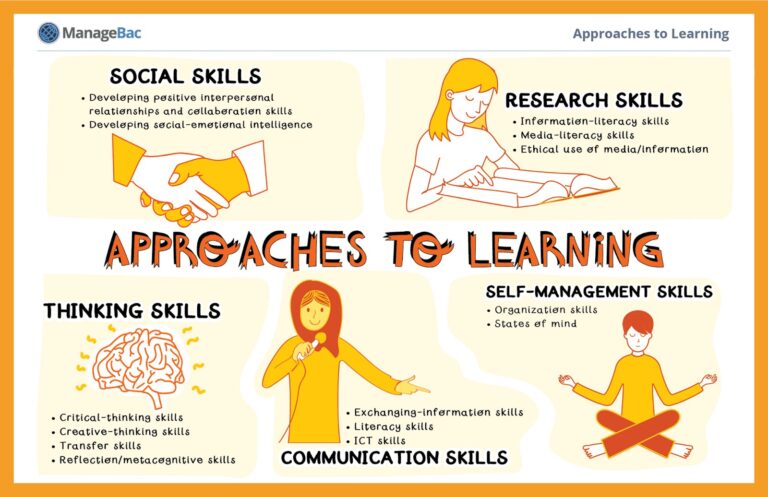
Agency: The Philosophy
The PYP model puts the learner in the centre of the educational process. Students are encouraged to take control of their own learning through the active use of their voice, choice and ownership
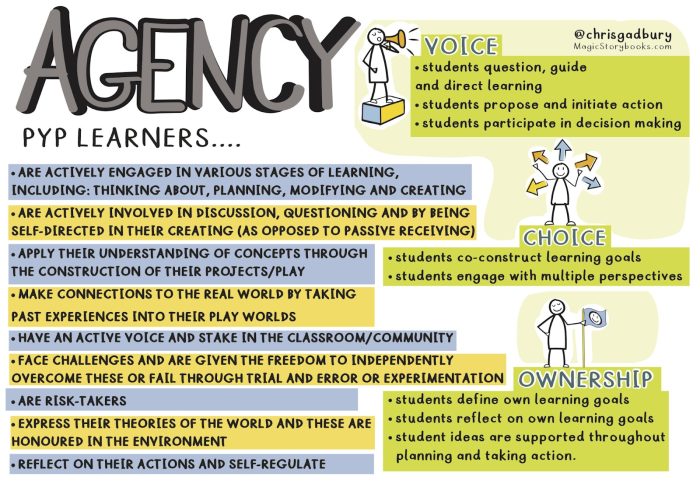
Action: The Result
The ultimate purpose of learning in the PYP is to move students to take action in their world. Action is a self-initiated activity that the learner engages in as a result of the learning. Action can take different formats:
– Participation
– Advocacy
– Social Justice
– Social Entrepreneurship
– Lifestyle Choices
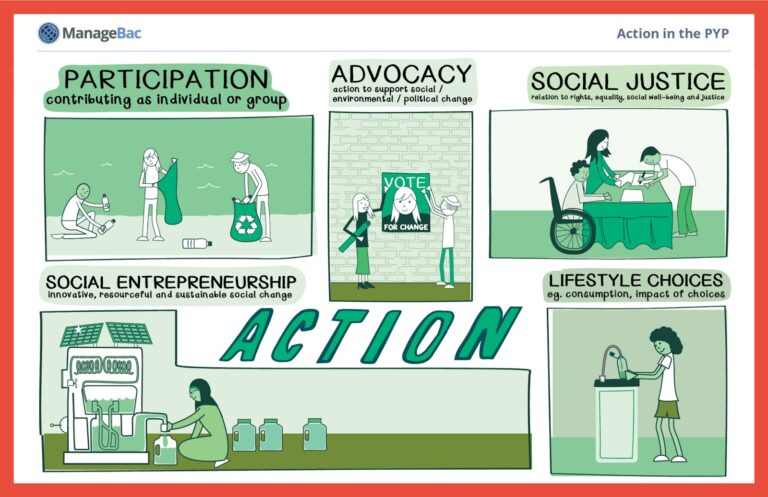
Learner Profile Attributes: The Goal
The Learner Profile Attributes are at the core of everything IB schools do. These are the personal characteristics that all IB students and educators aspire to model in their continuous efforts to become good citizens of the world.
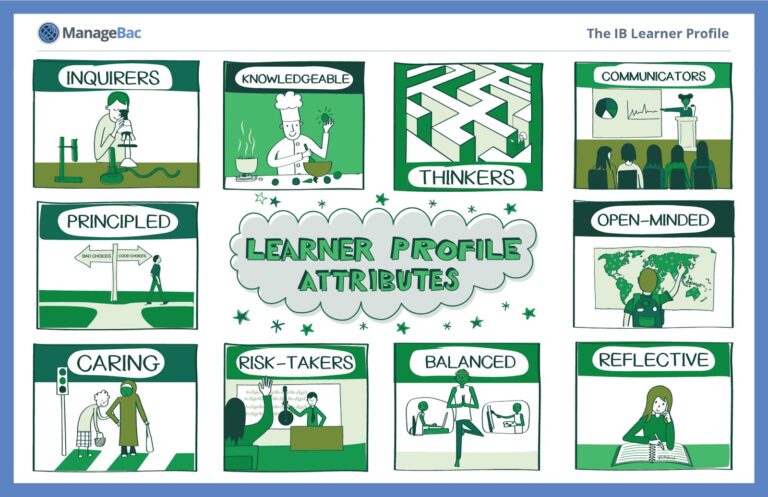
Approaches to Teaching: The strategies
PYP teachers use a wide range of constructivist strategies to make sure that the learning process remains student-centered and that ALL learners have the opportunity to develop to their full potential.
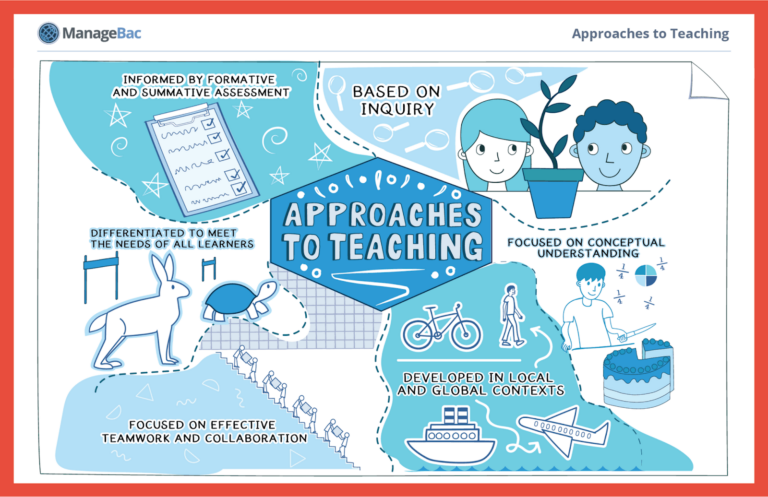
EARLY YEARS PHILOSOPHY
At Albanian College Tirana (ACT), our Early Years Department warmly welcomes our youngest learners into a holistic, safe, and supportive environment where they can embark on their educational journey. Catering to children aged three (EY1), four (EY2), and five (EY3), our program is designed to nurture growth and development across academic, social, emotional, and physical domains.
As students take their first steps into formal education at ACT, we set clear expectations to support their holistic development through play and curiosity. Explore our website to discover the exceptional learning opportunities our Early Years Department provides.
Early Years
Our Early Years curriculum is concept-driven, delivered through an inquiry- and play-based approach. Students engage with four units of inquiry, each centered on a transdisciplinary theme. These units incorporate learning outcomes from a variety of subjects, including English Language, Albanian Language, Mathematics, Science, Social Studies, Music, Visual Arts, and Personal, Social, and Physical Education (PSPE).
Rather than relying on worksheets or textbooks, the curriculum emphasizes hands-on, play-based learning. Through this approach, students develop essential transdisciplinary skills such as social, self-management, communication, thinking, and research skills.
Our ultimate goal is to foster independence, encouraging students to communicate effectively, collaborate with others, and take ownership of their learning and actions.
